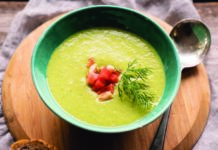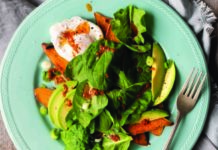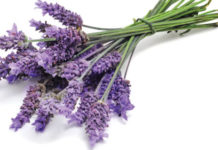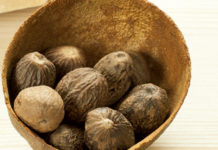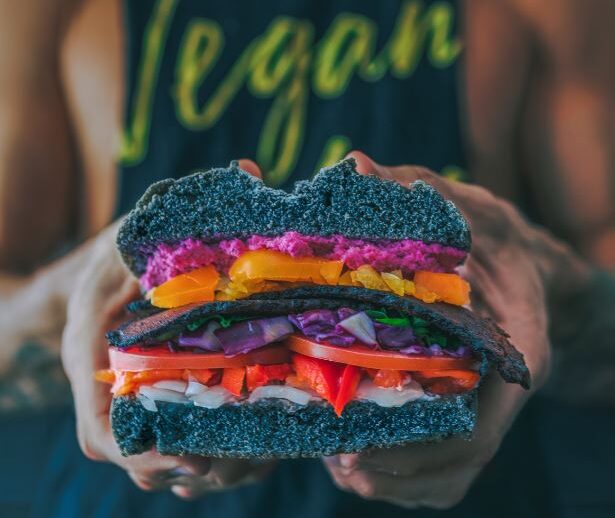
If you’ve switched to vegan but plants are feeling more like wild animals in your belly, don’t give up! Sometimes dietary change is like going to the gym—you just need to build up your digestive strength.
So you’ve decided to go vegan. You’ve been hearing stories about how great everyone feels after switching to a plant-based diet. But for some reason, you’re not basking in that same glow.
Maybe you’re feeling bloated, your bowel movements are irregular, you have acid reflux or even some irritable bowel symptoms. Perhaps you started off feeling great, but over time you began experiencing digestive troubles. Or maybe it was difficult right out of the gate.
It’s not what you signed up for, and you’re wondering if this is for you, right? Don’t throw in the towel just yet, because this is not uncommon when switching to a vegan diet—and it can be overcome. Here are some solutions that will help keep your veggie game strong.
Consider the fibre
How easily a vegetable is digested often relates to the type and quantity of fibre it contains. Insoluble fibre, while important, can be harder to break down when digestion isn’t functioning optimally.
Foods such as broccoli or cauliflower are slower to digest when raw, so try steaming or baking them instead. You can also combine those foods with soluble fibre foods, such as quinoa or potato, to get the bulk you need without stressing your digestive system.
Beans are a staple of the plant-based diet, but they’re also high in fibre and sometimes difficult to digest. Soaking dried beans with a type of seaweed called kombu before cooking, or serving canned beans slightly mashed or puréed (think refried beans or hummus) will help reduce indigestion and bloating.
Phytates and lectins don’t help
Some foods, such as beans and grains, contain compounds called phytic acid and lectin that may be irritating to the intestinal lining and can inhibit nutrient absorption. Proper advanced preparation, such as soaking and rinsing before cooking, can greatly reduce these compounds, making them easier to digest and the nutrients more bioavailable.
Digestive enzymes do help
During digestion, the body produces enzymes to break down food. There are three main types of enzymes: proteases to digest proteins, lipases to digest fats, and amylases to digest carbohydrates.
Prolonged digestive difficulty may indicate these enzymes have become depleted in your body, making symptoms such as gut irritability, diarrhea, and bloating difficult to overcome. Enzyme supplementation may greatly improve these symptoms.
If you don’t know which food is specifically giving you trouble, then start with a product that includes all three pancreatic enzymes: amylase, pepsin, and lipase. Trypsin may be included to help further break down amino acids, and added cellulase helps break down high-fibre foods.
Variety is the key
Switching to a vegan diet can sometimes be hard for those looking for satisfactory alternatives to meat, which may lead to consuming only a specific few protein options they like. However, lack of variety is problematic for two main reasons.
1. Digestive irritation
You’re more likely to experience intestinal irritation when eating too much of a food that is not easily digested.
2. Nutritional imbalance
You’re less likely to get the full spectrum of nutrients your body needs. Nutrient depletion can lead to general inflammation that may include intestinal inflammation, so staying properly nourished is important. Individual plants on their own don’t always have all the amino acids, vitamins, and minerals you need, so eating a wide variety of foods helps ensure your diet is balanced and nourishing.
Check the source
Some digestive enzyme supplements are sourced from animals, so be sure to read the label carefully. There are many plant-based, vegan-certified options available that are sourced from fruits such as pineapple or papaya, or from molds, yeasts, or fungi. Some can react with certain medications, so be sure to check with your doctor first.
When to seek professional help
The above advice should be helpful if you’re experiencing mild to moderate digestive upset. If you don’t notice fairly immediate relief in your symptoms or if your symptoms get worse, it may be time to seek professional help.
Digestive disorders should not be taken lightly. Left unchecked, they can lead to chronic inflammation, irritable bowel syndrome, diverticulitis, or even cancer. A nutritionist can recognize if these concerns are developing, help you pin down what foods may be the culprits, and help you learn to eat in a balanced way. Forming new habits can be challenging, but nutritionists have all the tricks to help you learn to love your food again.
Let food help with the heavy lifting
Some foods can improve digestion because of the various compounds they contain.
- Pineapple, mango, and papaya contain powerful enzymes that aid in digestion.
- Ginger can ease an upset stomach and improve digestion.
- Fermented foods such as yogurt, kefir, or miso help reduce bloating, keep the gut biome in balance, and reduce inflammation.
- Banana is an easy-to-digest prebiotic fibre and can restore electrolytes that may be lost due to diarrhea.
- Chia seeds expand when hydrated and increase water content in the gut, speeding up transit time, which can help prevent constipation.
- Raw honey contains many proteolytic enzymes and is a good alternative to refined sugar.
Paula Blanchet is a registered holistic nutritionist at Interplay Nutrition.
A version of this article was published in the January 2020 issue of alive Canada with the title “Is Becoming Vegan Hard to Stomach?”




